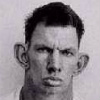I just discovered this fine sport a year ago and am ready to start tying my own flies. As sastisfying as it is to land a trout, I could only imagine the experience would be even better doing it on a fly that I created! Can anyone suggest a way to get started? Are the fly tying kits that one can get from Cabellas a good way to begin, or should I go piece by piece? Thanks in advance for any advice!



 Reply With Quote
Reply With Quote




Bookmarks